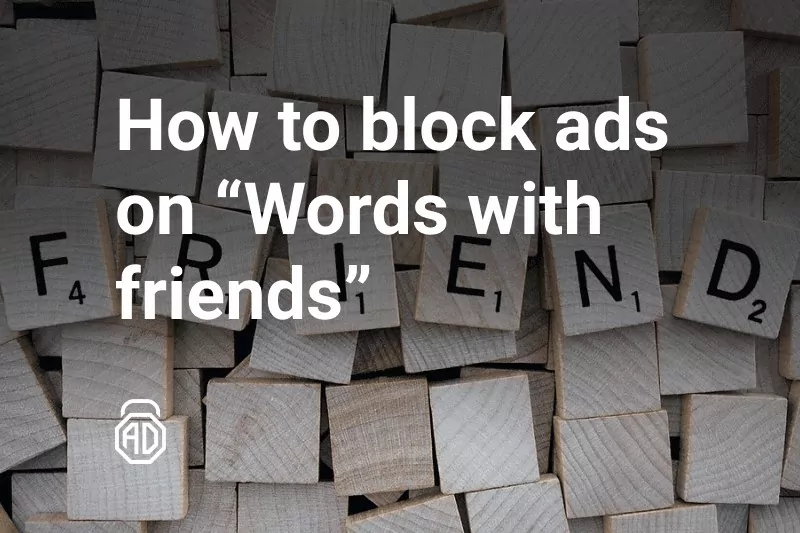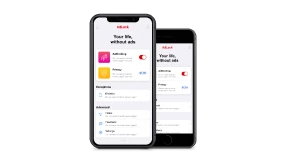Scam Ads on Google Search & How to Prevent Them
Google is the largest search engine in the world occupying 92% of the market. It’s hard to comprehend how massive Google is. Consequently, it’s no surprise brands want to take advantage of the engine’s advertising features.
You have undoubtedly seen ads inbetween Google search results, especially on the first page. That is a prime location for promoted links and advertising.
Unfortunately, Google’s moderation has gotten pretty poor: outright scams began to slip into advertisements in search results. For example, googling “check the balance of a Target gift card”, one would find a phishing link prompting them to enter the gift card data as the first result. What’s more interesting is that the link leads to the legitimate domain of the van rental company, but the site is apparently hacked. The phishing form is located in one of the subdirectories — when accessing the site directly, nothing suspicious is displayed.
The Reddit user who discovered the scam tried to reach out to Google, but the scam ads were displayed for several days after that until major American publications wrote about the problem on hand and contacted Google for a comment.
The theft of gift card data has become a real problem in the US in the first three quarters of 2021. Fraudsters caused $148 million of losses, $35 million of which was stolen from Target cards.
This is just an exemplary case, one of many. What’s funnier is that neither Google nor Bing (being paid to display scams) still hasn’t understood how to stop it.
We’re here to help you in sorting this problem out. If you don’t want to fall victim to con artists disguised as legit companies, we’ve got several suggestions. Data security is our top priority and our product, AdLock, is the best data guard to date. Want to know how to protect yourself? Buckle up!
How Do Scammers Make It To Google Ads?
In short — easy. All scammers need to do is pick a keyword and pay for it to be on the first page. They buy ad placement — a breeze. Literally, anyone who has money can buy and run adverts on Google Ads. When clicked, scam ads redirect Internet users to fraudulent websites swarming with trackers, malware, and scripts that may steal your data, infest your device with adware (for instance), or else.
Oftentimes, the main goal for these con artists is to steal peculiar info — e.g. login credentials, account details, or other sensitive data. What happens to that data later is that hijackers steal accounts, drain wallets/balances, and use the information for other shady purposes.
The theory prevails that the reason for scams to infiltrate Google Ads is Google itself. There are known cases when people using Google Ads campaigns had to “get help” from Google with setting up services. Of course, those were con artists pretending to be Google staff and giving the impression of well-disposed and caring specialists. They state that you’re misusing the service hence losing tons of money and if you want to right the ship, they would need access to your account.
Taking to account that Google itself has been aggressively reaching out to its Ads service users for the past several years, it has become even harder to distinguish real Google support from scammers.
If you don’t know why Google has been doing this, then here’s the reason — they want to control your campaign and how you give them money. By handing them your money and letting them mess with your ad campaign you allow them to choose how much success to give you and keep that wallet giving money.
We highly recommend business owners keep Google out of their pocket. It’s always better to hire an independent specialist to build up the strategy and ad campaign. All you will have to do then is to adjust and tweak your campaign according to the plan.
How to Spot Scam Ads in Google Search
There are lots of different scam ad types scattered all over Google and our article would turn into a doorstopper if we consider them all. However, we’ve compiled a short list of the most common google search scam ads for you to point at them and say “Hey, I saw this one!”.
Cryptocurrency scam
This one appeared simultaneously with cryptocurrency and is following it and ain’t lagging behind. Scam attempts within the cryptocurrency industry are growing in number and evolving. There have been numerous cases of Google waving through digital crypto wallet scams that redirect to phishing websites or copycat brand pages like MetaMask.
Con artists create fake domain names similar to official cryptocurrency platform URLs and pose themselves as real brands to bait users. Then, they steal sensitive data, financial and account/wallet details, and cryptocurrency if it’s there. This has resulted in hundreds of thousands of dollars being stolen.
Counterfeiting
Counterfeit goods and fake profit goods have been baning the Internet and its users for years. It’s an interesting topic on its own, and we’ve got an article that covers the issue. You’re welcome to read the fake product ads research by our bloggers.
By using the Google Ads service, scammers direct Internet users to websites where they sell counterfeit goods. Well, okay, technically, it’s not a scam since they do sell goods. On the other hand, they are still infringing on the brand. The ad, for instance, says something like “Nike sneakers for only $30! Only today!” and redirects you to “almostnike.com” where the abundance of sneakers is displayed. At first, they look legit, but your spider senses should start tingling. Counterfeit products are made with cheaper materials and technologies which results in lower overall quality. And then, after buying one of those, you’ll wear them out in like a season and think it’s Nike who produced low-quality stuff.
Brand impersonation
All about brand impersonation is creating fake websites with stolen photos of goods and their descriptions. When users google for a specific brand, they face an ad at the top of the search results page that is oftentimes a scam. The website will look 100% legit at first, but the only thing it’ll do is fool you and steal your data/money.
Fake profit goods
It’s about magic pills and tools. This topic is considered in our article with all the variety of magic pills and other useful (less!) stuff you may fall victim to. The reason for these to bloom all over the Internet is that they twist the knife. They know how to turn your problems into their money. Don’t be a fool.
Real Cases
Now let us give you an example or two of when scammers were caught in action. Malwarebytes, the notorious cybersecurity company has made several discoveries where con artists scam Internet users via Google Ads. They even tweeted about the discovery.
🚨 We detected a major malvertising campaign abusing Google Ads.
— Malwarebytes Threat Intelligence (@MBThreatIntel) July 20, 2022
➡️ Stay tuned for our full report on this campaign. pic.twitter.com/VzAdtgVR3q
What’s even more ridiculous (apart from the fact that the link is malicious) is that Google let them do this. What about moderation? Maybe a slight filtering? No.
By using this method called “traffic hijacking”, scammers spoof names and websites of real brands and link their ads to malicious websites.
In its turn, Google says “we take actions when we become aware of these instances”. Good job! Thousands of users all over the world fall victim to scammers, lose their money and data, get computer viruses, etc. and there’s no real solution from Google yet.
How to Protect Yourself
First and foremost, you should get yourself an adblocker. It’s even recommended by the Federal Bureau of Investigation, and here’s the link. A reliable ad blocker will clean up the Internet from ads that mysteriously infiltrate Google and become a real plague of the worldwide web. Although a good ad blocker like AdLock is the way, you should also take the following precautions when surfing the Internet:
- Always check the URL of the website you’re going to visit. A malicious website usually has “typos” or misplaced letters/characters.
- Save bookmarks for the sites you use the most.
- Never click “Ad”/”Sponsored” results in the search.
- Always have an antivirus on top of your adblocker.
- Never click anything that says “Virus detected on your device” on your browser — it’s a scam.
- Preview the page when unsure if it’s a real destination — hover your cursor over the link.
- Always report fake ads if you face them. Even if they are not fake or scammy, Google will check them for being legit.
What Brands Should Do
Fake Google ads screw up brands pretty badly as well. Con artists not only steal revenue from brands but their reputations as well. Brand owners should protect their identity established on the market to prevent damage.
First of all, you as a brand owner should claim your Intellectual Property (IP) which will provide legal protection. Claiming your intellectual property grants you more control over how your brand is projected on the market.
- Register the trademark. This will separate you from competitors and scammers as well. A registered trademark will ensure no one would be able to legally use the same name.
- Patent your goods. By doing so you will ensure legal protection for your unique inventions from being copied by other brands. Otherwise, if someone dares to copy your invention, you have a legal right to shut them down.
- Protect your stuff with copyrights. By copyrighting your products, product images, and any sort of media, you ensure scammers don’t use them.
- Domain and subdomains. Being a big part of your brand identity, your domain name should also be protected. Con artists can buy domain names with the same lettering as yours but a different extension to set up a fake website.
- Monitor your brand online. Constantly look for media pages and sites copying your brand.
- Educate your customers. Make your brand consumers know how to identify your goods, and how to distinguish fakes.
- Report fake ads. Once you find a fake google ad impersonating your brand, submit your report immediately.
Victim of Scam? Here’s How to Recover
You have to act fast since scammers can use stolen data for a wide variety of purposes. First of all, don’t blame yourself. Feeling frustration, embarrassment, and anger won’t help.
Assess the issue and possible outcome. If your sensitive data is in harm’s way, then you should take the following actions:
- Reset your passwords;
- Block your credit card;
- Reach out to your bank and notify it;
- Document the fact of the scam/fraud;
- File a report.
In case you’ve got your device infected with malicious software, you should immediately run a deep scan via your antivirus. This would disable malware and help you get rid of it. Any unwanted and fraudulent stuff will get captured by your antivirus scripts. If not, then you may run system recovery which would revert any changes that happened to your device. Of course, you may lose some of the recent files and documents, but you’ll fend off malware.
Forewarned, Forearmed
Just like the FBI, we suggest you be forearmed against online threats. Speaking of a reliable adblocker that would be a helping hand, we would recommend AdLock. No, not just because it is our product. Just to let you know, our main focus is cybersecurity. AdLock is developed with that in mind — your data belongs to you only, and no one out of the blue should be capable of stealing it.
AdLock’s Anti-tracking services remove all forms of online tracking scripts run by Google, Facebook, etc., which means you’ll be a cybershadow online. Not a single tracker would be able to trace you. Talking of commercials, it doesn’t matter whether it is a fake Google ad, banner, pop-up, or video/audio advert — our full-fledged application makes them all vanish. Not only in browsers, but in applications as well! On top of that, AdLock’s anti-malware module will always warn you about the threat lurking behind a link or ad. With AdLock you’ll never fall victim to scammers unless you do it intentionally. Available for all modern operating systems, AdLock is a godsend for security-conscious Internet users. Give it a shot today and you’ll fall in love!
Final Thoughts
Fraudsters and cybercrooks are constantly searching for new sophisticated ways of fooling people and stealing their possessions — data, money, identity, etc. It’s a shame that google ad scams are even real. Raw unmoderated fake ads on google search that cause lots of damage to brands and consumers should be stopped. And while Google is taking its time, you should take action to avoid getting scammed. Follow the rules and suggestions from our article, install AdLock on your device and you’ll be safe and sound online.
Frequently Asked Questions
Why is Google advertising scams?
Google search scam is a result of poor moderation by Google. If literally anyone can buy ad placement, then it’s no wonder we have what we have. While there’s no solution from the tech giant, please make sure you report scam ads to google. And yeah, listen to what the FBI suggests — get an adblocker.
Is it only Google that can have scam ads?
Nope, it’s a major problem reported to appear in Google, DuckDuckGo, and Bing. These three are suffering the most today (if I say so myself). They earn money for displaying these scam ads and take no action to filter promoted stuff.
What types of scam ads are most common on Google?
The most widespread fake ads on google search are cryptocurrency, spoof websites, counterfeit goods, and fake profit goods. Be careful when considering clicking the “Sponsored” search result.
Can Google ad scams infect my phone?
Absolutely. No matter, if it’s a phone or a PC, malicious code which may be lurking in the advert, will definitely infect it. If your device started behaving somewhat suspiciously, don’t spare the horses — scan it with an antivirus, change your passwords, etc. Just follow the instructions from our article.










